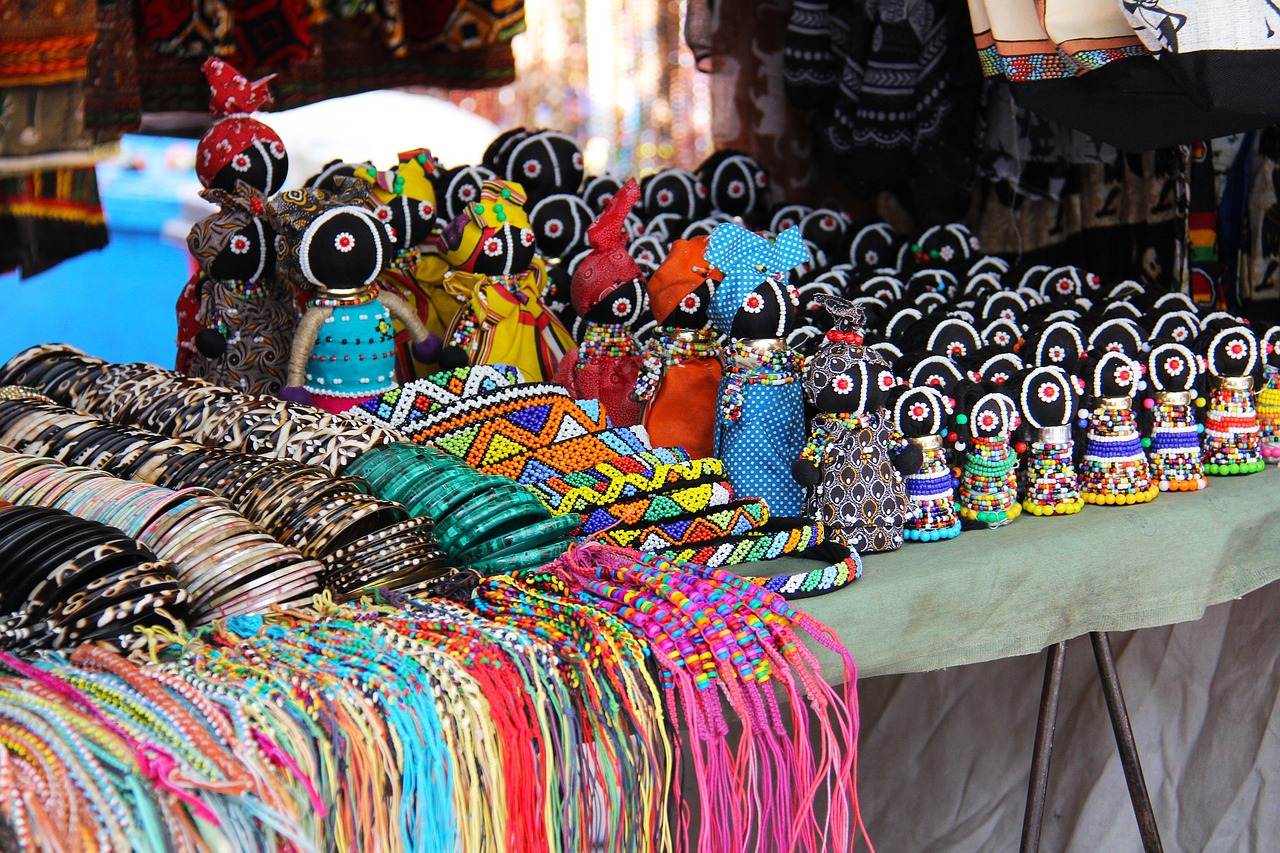South Africa Video
Cultural Sensitivities: Understanding Local Norms in South Africa
South Africa is a diverse and multicultural country with a rich history and unique cultural norms. To fully appreciate and respect the local customs, it is essential to understand the cultural sensitivities that exist within the country. This article aims to provide a comprehensive guide to understanding local norms in South Africa, covering various aspects of daily life, social interactions, and traditions.
Historical Background:
South Africa has a complex history marked by colonialism, apartheid, and subsequent efforts towards reconciliation and social integration. Understanding this historical context is crucial in comprehending the cultural sensitivities of the country. It is important to acknowledge and respect the struggles and triumphs of the diverse communities that make up South Africa.
- Apartheid Era: The apartheid era, which lasted from 1948 to 1994, was a period of racial segregation and discrimination. It had a profound impact on the social fabric of the country and continues to shape cultural sensitivities today.
- Reconciliation: Since the end of apartheid, South Africa has embarked on a journey of reconciliation and nation-building. The Truth and Reconciliation Commission played a significant role in addressing past injustices and promoting healing and understanding among different communities.
- Cultural Diversity: South Africa is often referred to as the “Rainbow Nation” due to its diverse population. The country is home to various ethnic groups, including Zulu, Xhosa, Sotho, Ndebele, and Afrikaans-speaking communities, among others.
During this time, racial segregation was enforced by law, and different racial groups were assigned separate areas for living, education, and public facilities. The legacy of apartheid has left deep scars and sensitivities that should be approached with empathy and understanding.
It is important to recognize and respect the ongoing efforts towards reconciliation in South Africa and to engage in conversations that promote unity and understanding.
Each ethnic group has its own unique customs, traditions, and languages. Embracing and appreciating this diversity is essential in understanding and respecting local norms in South Africa.
Greetings and Social Etiquette:
In South Africa, greetings and social etiquette play an important role in daily interactions. Understanding the appropriate ways to greet and engage with others is crucial to show respect and build positive relationships.
- Handshakes: Handshakes are the most common form of greeting in South Africa. When meeting someone for the first time or in a formal setting, it is customary to shake hands firmly while maintaining eye contact.
- Greetings in Different Languages: South Africa is a multilingual country, and greetings can vary depending on the language and cultural background of the individual. Learning basic greetings in different languages, such as “Sawubona” in Zulu or “Molo” in Xhosa, can be greatly appreciated.
- Respecting Personal Space: Personal space varies among individuals and cultural groups. While South Africans generally appreciate a friendly and warm demeanor, it is important to respect personal boundaries and avoid invading someone’s personal space.
It is important to note that some individuals may prefer not to shake hands due to cultural or religious reasons. In such cases, it is best to wait for the other person to initiate an alternative form of greeting.
Using a person’s preferred language when greeting them shows respect for their culture and fosters a sense of inclusivity.
Observing non-verbal cues and adjusting your behavior accordingly is crucial in maintaining respectful social interactions.
Religious and Traditional Practices:
Religion and traditional practices hold significant importance in South African society. Understanding and respecting these practices is essential to avoid causing offense or misunderstanding.
- Christianity: Christianity is the dominant religion in South Africa, with various denominations represented. Churches play a significant role in the lives of many South Africans, and attending religious ceremonies or events may be seen as a sign of respect and interest.
- Traditional Beliefs: Many South Africans also adhere to traditional African religions and beliefs. These beliefs often involve ancestor worship, rituals, and spiritual practices.
- Festivals and Celebrations: South Africa is known for its vibrant festivals and celebrations that showcase the country’s cultural diversity. Events such as the Cape Town Carnival, the Durban International Film Festival, and the National Arts Festival provide opportunities to experience the rich cultural heritage of the country.
It is important to be aware of religious holidays and customs, such as Christmas and Easter, and to show sensitivity towards these observances.
Respecting and showing interest in these traditional practices can help foster understanding and appreciation for the diverse cultural landscape of South Africa.
Attending these festivals and celebrations can be a wonderful way to immerse yourself in South African culture and gain a deeper understanding of local traditions.
Gender Roles and Social Dynamics:
Gender roles and social dynamics can vary among different cultural groups in South Africa. It is essential to be aware of these differences and approach interactions with sensitivity and respect.
- Greetings and Introductions: When greeting someone of the opposite gender, it is customary for women to initiate the greeting by extending their hand. Men should wait for the woman to extend her hand before reciprocating.
- Respecting Elders: South African culture places great emphasis on respecting and honoring elders. It is customary to address older individuals with titles such as “Auntie” or “Uncle” as a sign of respect.
- Gender Equality: While progress has been made towards gender equality in South Africa, there are still challenges that exist. It is important to approach discussions on gender-related issues with sensitivity and respect for diverse perspectives.
It is important to note that these customs may vary among different cultural groups, and it is always best to follow the lead of the person you are interacting with.
Listening attentively and showing deference to older individuals is highly valued and demonstrates cultural sensitivity.
Engaging in open and respectful dialogue can contribute to promoting gender equality and understanding in South African society.
Food and Dining Etiquette:
Food plays a central role in South African culture, and dining etiquette varies among different cultural groups. Understanding the customs and traditions surrounding food is important when participating in communal meals or dining with locals.
- Braai (Barbecue): The South African braai is a beloved tradition that involves grilling meat over an open fire. It is a social gathering where friends and family come together to enjoy good food and company.
- Sharing and Communal Eating: In many South African cultures, communal eating is common, with dishes placed in the center of the table for everyone to share.
- Respecting Dietary Restrictions: South Africa is a diverse country with individuals following various dietary restrictions and preferences. It is important to inquire about any dietary restrictions or preferences when hosting or attending a meal.
When attending a braai, it is customary to bring a dish to share and to offer help with the preparation or cleanup. Engaging in conversations and enjoying the food is a key part of the experience.
When dining in this context, it is polite to wait for the host or elder to start eating before you begin. It is also considered respectful to use your right hand for eating, as the left hand is often associated with hygiene practices.
Accommodating these restrictions and offering suitable alternatives demonstrates respect and consideration for others’ needs.
Image 1:

Local Customs and Traditions:
South Africa is rich in customs and traditions that vary among different cultural groups. Understanding and respecting these practices is essential to fully appreciate the cultural diversity of the country.
- Ubuntu: Ubuntu is a Nguni Bantu term that embodies the philosophy of interconnectedness and community. It emphasizes the importance of compassion, empathy, and respect for others.
- Ceremonies and Rituals: Various ceremonies and rituals are an integral part of South African culture. These can include initiation ceremonies, coming-of-age rituals, and traditional weddings.
- Art and Craftsmanship: South Africa has a rich artistic heritage, with diverse forms of art and craftsmanship. Traditional crafts such as beadwork, pottery, and wood carving showcase the creativity and cultural expressions of different communities.
Embracing the concept of Ubuntu can greatly enhance cultural sensitivity and foster positive relationships with locals.
Respecting the significance of these ceremonies and participating with an open mind can provide valuable insights into the cultural practices of different communities.
Supporting local artisans and appreciating their craftsmanship is a meaningful way to engage with South African culture.
Image 2:

Respecting Nature and Wildlife:
South Africa is renowned for its breathtaking natural landscapes and diverse wildlife. When visiting natural reserves, parks, or engaging in wildlife experiences, it is crucial to prioritize responsible tourism and respect for the environment.
- Wildlife Conservation: South Africa is home to numerous protected areas and national parks. It is important to follow the guidelines and regulations set by these conservation areas to ensure the preservation of the environment and the well-being of the wildlife.
- Sustainable Tourism: Choosing eco-friendly accommodations, supporting local conservation initiatives, and minimizing your environmental impact are essential components of responsible tourism in South Africa.
Respecting the rules, such as not feeding or approaching wild animals, helps maintain the balance of nature and protects both the animals and visitors.
Being mindful of waste management, conserving water, and respecting the natural surroundings contribute to the long-term sustainability of the country’s natural resources.
Image 3:

Conclusion
Understanding and respecting the cultural sensitivities of South Africa is vital for fostering positive interactions and building meaningful connections. By acknowledging the historical context, embracing diversity, and showing empathy towards different customs and traditions, visitors can engage with South African culture in a respectful and enriching manner. Remember to approach each interaction with an open mind, ready to learn and appreciate the unique experiences that South Africa has to offer.
References:
– southafrica.net
– sahistory.org.za
– capetown.travel
– sanparks.org
– southafrica.co.za


